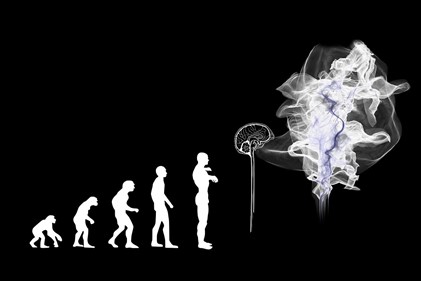
AI-Based Test Automation and Intelligent Assurance of Software Product
At the heart of great software is quality testing. Over time, it has been observed and proven that the competence and technical know-how of software developers in designing and writing software code is insufficient to deliver quality products. In fact, a software product not tested is not worthy of deployment.
In testing practice, a fundamental question to answer remains “What do I test?”- Knowing what to test transcends testing business requirements and acceptance criteria as both alone usually do not cater for comprehensive test coverage; leaving out critical Quality Assurance (QA) ceremonies such as negative test cases, edge test cases to name a few.
However, in recent times, with the advent of Artificial Intelligence (AI) and related technologies, the narrative has transitioned to become a function of how to test rather than what to test.
Asking what to test is to seek information about the requirements and use cases to be tested. How to test responds to the method and details about the testing process. The ability to know what and how to test is what gives birth to intelligent assurance in software, but it can be tedious especially if approached manually or by the traditional software testing methodologies.
In my view, optimizing advanced technology such as AI-based test automation is emerging as a seamless, most efficient and productive approach to deliver a product with high quality.
Evolution of Software Automation

AI-based test automation, unlike the traditional test automation, is the practice where artificial intelligence is applied to streamline and enhance software testing process. This is achieved by leveraging AI algorithms to generate and execute test cases, analyze results and recommend solutions to remedy defects.
Traditional test automation entails the manual writing of test plans and test scripts (manual coding) to simulate user interaction with an application so as to verify its functionalities and identify defects. By this practice, the huge dependence on human effort for test case generation, script writing, debugging, and defect resolution has been known to introduce defects of its own in the quality assurance process and such, these processes have been successfully automated with good success over the years.
In my view, the software testing practice lends itself to intelligent automation where huge data sets of testing cycles and defect remediation becomes a viable source of training data for AI algorithms with a fair degree of accuracy.
Whilst traditional (or classical) software testing remains widely used and its adoption has proven to be effective for many scenarios, it can be limited when it comes to handling dynamic and complex scenarios such as in a vast microservices architecture and DevOps environments with multiple feature builds, fixes and deployments are executed per day.
Intelligent Assurance
Intelligent assurance (IA) in the Software Development Lifecycle (SDLc) is the use of advanced technologies such as Machine learning (ML) and Generative AI to improve the quality, effectiveness, productivity, efficiency, and accuracy of the product features; to enhance customer experience and user adoption.
It leverages these technologies to refine, accelerate, scale up and provide audit and compliance reporting in real-time for what used to be human-based activities (or manual tasks) to deliver quality and customer value.
Opinion on emergence of AI Tools

- Generation of Intelligent Test Scripts:
GenAI can be embedded in an automation tool to generate test scripts when it interacts with the application’s UI elements, underlying code and user flow. This is time efficient as manual scripting is time consuming and can strain efforts if scripting is to be re-done due to changes in code or the UI of the application being tested.
- Self-Learning Models:
Machine Learning can be adapted to test scenarios using test data to determine different outcomes. When there are changes in the test data the machine learning algorithm has been trained to predict with a fair amount of accuracy, outcomes of the data variation some of which can be associated with previously unpredictable human interaction with the application user interface.
Such leaps in intelligently discovering testing scenarios gravely underscores the limitation of traditional software testing practices and supports the rapidly emerging value proposition for organically scalable and highly interactive platform solutions prevalent in today’s web 3.0 technologies.
- Test Case Prioritization:
AI-based test automation can prioritize test case execution based on risk assessment and impact prioritization for mission and business critical risk scenarios based on historical data and risk profiles developed by matching data patterns and observable customer use cases.
- Test Execution with Real-time Reporting:
A keen aspect of the software test cycle is the need to ensure application or product stakeholders obtain valuable insight on real-customer behavior. Insightful reporting of testing cycles based on observable customer behavior lends valuable and real-time analysis on how software quality improves customer adoption, product reliability and feature improvement.

Bringing it all together…
Allow me to paint a real-life scenario of the above AI value proposition. Kara (fictitious name) was a member of a test automation team that delivered several software projects/applications last quarter. Kara recently took up a new role to lead the testing activities of a program having many projects under it.
She executed a functional (manual) test and sent the test tracker to her former team to automate the test cases. The automation team scripted the necessary test cases and successfully executed the tests.
However, the same tests failed during regression, because the development team had accommodated some UI changes following the last release cycle that the test automation team may not have been aware of. Kara received several complaints from the automation team on the failing test scripts leading to the suspension of test automation.
It is my opinion that an intelligence-based test automation framework would have identified those changes and dynamically adapted the test scripts to address the changes to the application under test.
Conclusion
It is my view that with the emergence of web 3.0 and vastly adopted automation of distributed software applications such as service orchestration of microservices requiring multiple code deployments per day, the gains of traditional software automation can no longer keep up with the rapid rate demanded by the industry for code deployment, bug fixes and feature releases.
Intelligent Automation which leverages the benefits of AI in software testing appears to be the best fit solution in meeting the benchmark set for secure, highly interactive, reliable, and vastly scalable customer applications that deliver excellent customer experience.
Embrace the future of software testing with AI-based intelligent automation for unparalleled quality and efficiency.
Ready to elevate your software testing game with AI-based intelligent automation? Explore the power of AI-based test automation with Tezza and ensure your products meet the demands of the rapidly evolving industry. Contact us today to embark on a journey toward secure, reliable, and customer-centric applications.

